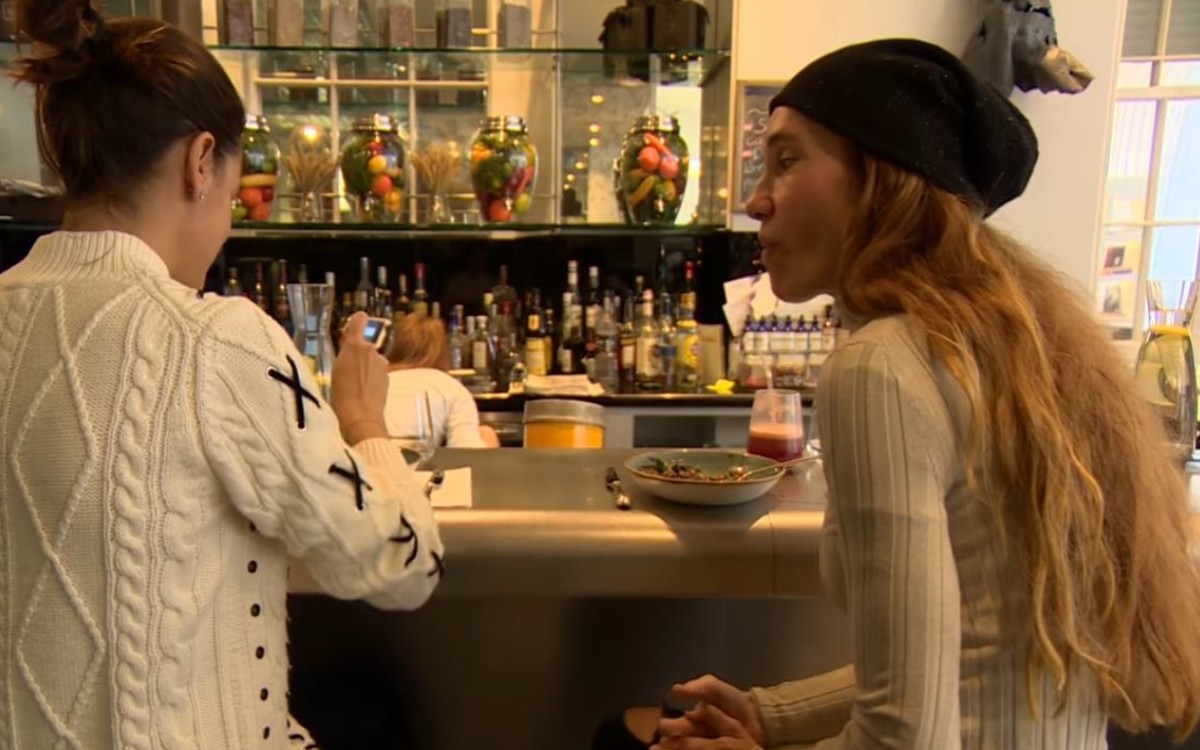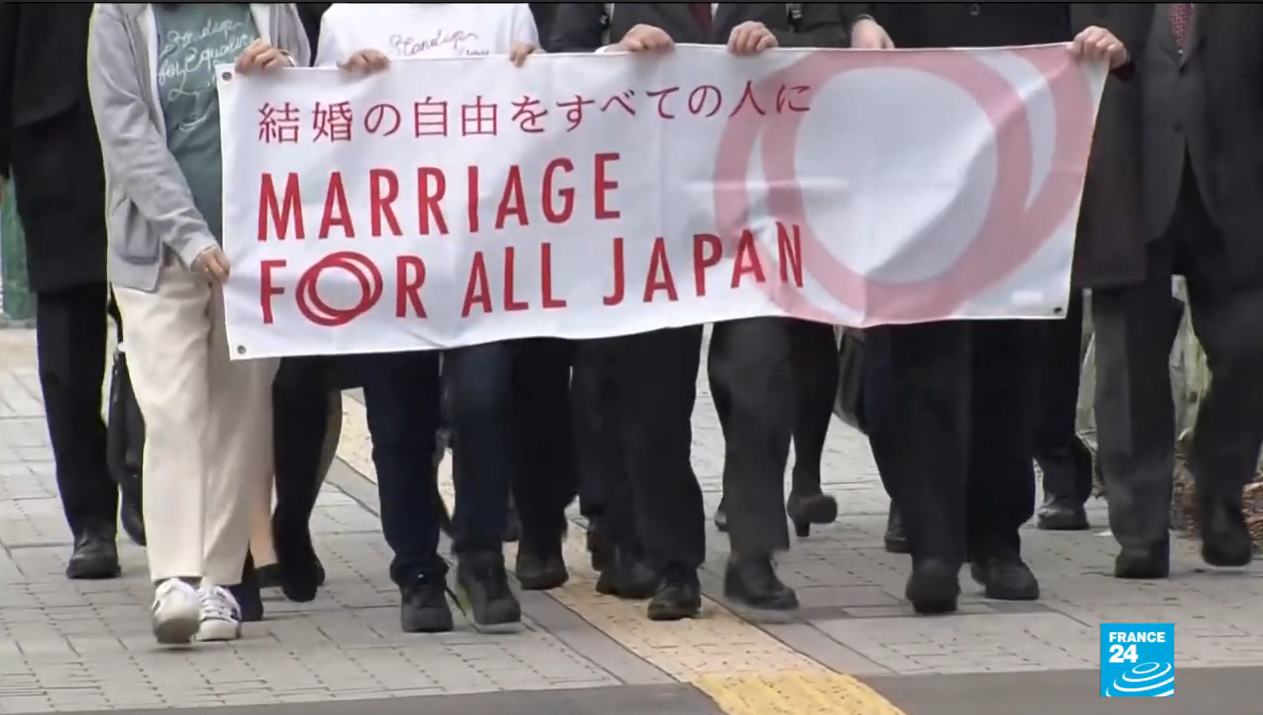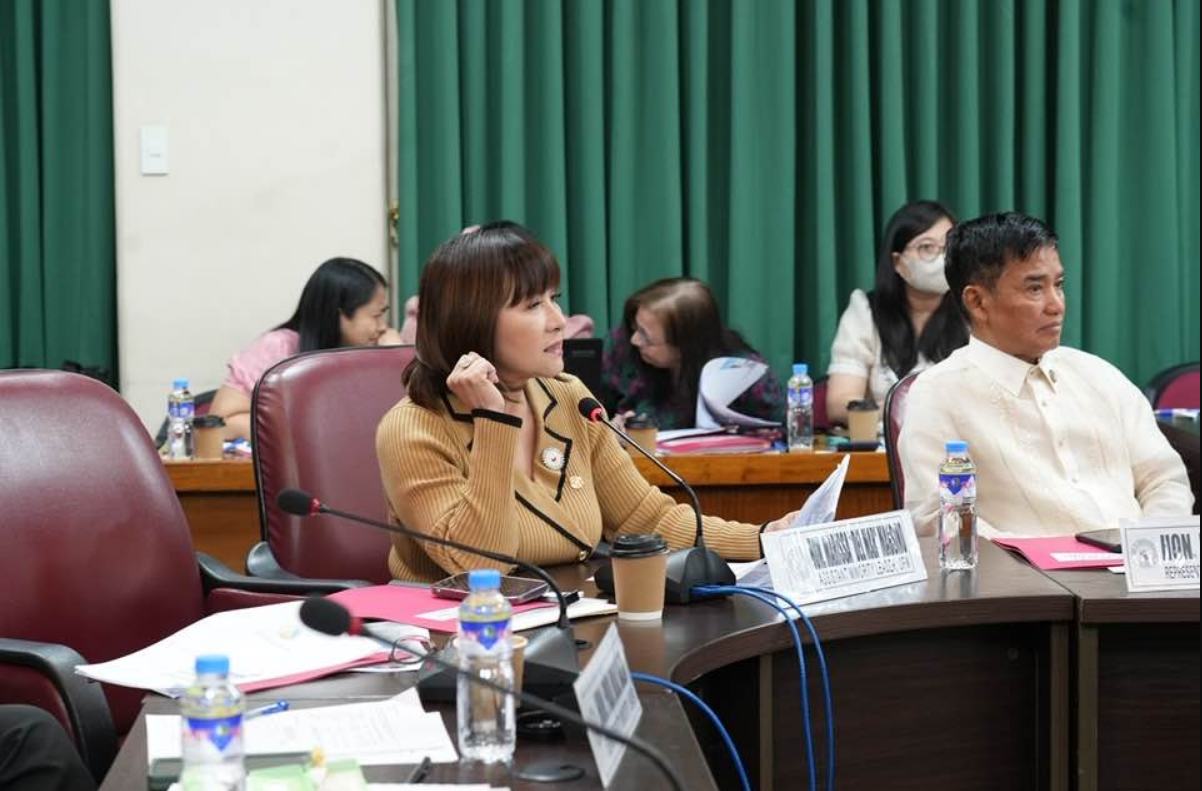World
Out in the World: LGBTQ news from Europe and Asia
JK Rowling mocked Scotland’s new hate crimes law

SCOTLAND

Harry Potter author JK Rowling took the opportunity of Scotland’s new hate speech law coming into force to harass several prominent British transgender people over X, but Scottish police say they’re not planning to charge her over her posts.
Rowling spent the morning of April 1 making a series of posts in mock celebration of the womanhood of well-known trans people, starting with some well-known convicted sex offenders and then listing several notable trans activists. At the end of her series of posts, Rowling gave up the joke.
“🎉🌼🌸April Fools! 🌸🌼🎉Only kidding. Obviously, the people mentioned in the above tweets aren’t women at all, but men, every last one of them,” she wrote. “If what I’ve written here qualifies as an offense under the terms of the new act, I look forward to being arrested when I return to the birthplace of the Scottish Enlightenment.”
As is her usual style, Rowling then spent the rest of the day reposting fawning congratulatory posts from other bigots and arguing with people who stood up to her.
Rowling was protesting the Hate Crime and Public Order (Scotland) Act 2021, which came into effect on April 1. The revision to Scottish hate crime law added protections for age, disability, religion, sexual orientation, gender identity and intersex people, both for aggravated punishment of hate-motivated crimes and for “stirring up hatred” against protected groups.
The law has drawn criticism from free-speech advocates, who say it will having a chilling effect on speech critical of protected communities. But supporters of the law saw that the threshold for prosecution is very high and it’s unlikely to be used for genuine political discourse or advocacy.
So far, that seems to have been borne out — Scottish police have already said that Rowling’s posts do not rise to the level of hate speech and she is not being charged.
In fact, the whole incident has just burnished Rowling’s reputation among anti-trans crusaders.
Not only did British Prime Minister Rishi Sunak commend the decision not to charge Rowling, but his statement to the BBC on the matter seems to back up Rowling’s hateful views.
“Nobody should be criminalized for saying commonsense things about biological sex,” Sunak told the BBC.
Trans issues have become a major issue in the UK over the past several years as a rising tide of self-described “gender-critical” activists — of whom Rowling is the most prominent — have successfully gotten the ear of the governing Conservative Party.
Last year, after the Scottish government passed a controversial law that would allow transpeople to change their legal gender by self-declaration, the British government disallowed the law, saying it would be incompatible with England and Wales’ rules around gender recognition.
Conservatives have also slow-walked their promised bill to ban conversion therapy after years of pressure from gender-criticals who got the government to remove protections for trans youth. A bill in unlikely to pass before elections expected later this year.
Scotland is holding consultations on its own conversion therapy ban bill, but divisions over LGBTQ issues are one of the causes of a rift in the governing Scottish National Party, which is seeing a challenge from the upstart ALBA party, which also wants Scottish independence but has leaned into anti-trans politics.
ENGLAND

An anti-trans activist has announced plans to open a private, members-only lesbian bar that refuses admission to trans women in London later this year, although details on where the bar will be located or when it will open have yet to be revealed.
The bar, to be called L Community, will be a private, members-only bar, which owner Jenny Watson, 32, says will allow her to skirt discrimination laws by restricting membership to cisgender lesbians.
Watson has gain notoriety in England for throwing lesbian focused events that exclude trans women.
Last year, Watson threw a lesbian speed-dating event that gathered controversy for its trans-exclusion policy, but was ultimately allowed to go ahead.
Watson says the backlash to that event has led to her other trans-exclusionary events being refused or cancelled by venues she’s tried to book. Having her own venue will allow her to host her own events.
“No one will take bookings for my events any more,” Watson told the Telegraph. “The trans activists are constantly targeting the events, so venues don’t want anything to do with them.”
“We should have a right to our own space — hence the idea to set up the bar. It will be for biological females only and this is why we’re making it a members-only club so we can legally restrict it to women,” she said.
On the web site for L Community, Watson lists potential events the bar could host, including speed dating, networking events, lesbian movie nights, open mics, trivia nights, book clubs and panel discussions.
Even though the bar has no opening date, L Community is already soliciting free and premium memberships, which its website says will come with priority access to events and L Community’s “social media platform.” Premium members are asked to make a “donation” of £120 (approximately $150.)
Anyone wishing to join must attest to being a biological female and upload government ID to the L Community website as proof.
Trans journalist Shivani Dave criticized the “crap new terf [trans-exclusionary radical feminist] bar” on their Instagram account and announced a plan to hold a trans-inclusive kiss-in in front of the bar “if it ever opens.”
“YOU THINK I’M JOKING? We are gonna go and make out in front of this TERF bar every single day until it closes. Lol that is if it ever even opens. Bigots be bigoting? Trans+ people are gonna be snogging,” they wrote.
THAILAND

Thailand got one step closer to legalizing same-sex marriage this week as the Senate voted 147-3 to advance the marriage bill through first reading. The bill now heads to a committee which has up to 60 days to study the bill before returning it to the senate for second and third reading.
Advancing LGBTQ rights has become a major issue in the southeast Asian country of 66 million over the last decade. Last year saw the opposition Move Forward Party win a plurality of seats in elections to Parliament’s lower house after it promised to legalize same-sex marriage. But the party was barred from government by a court ruling its leader breached the constitution by proposed changes to the country’s strict laws that forbid criticism of the monarchy.
The governing coalition that was later formed without Move Forward agreed to make marriage equality and LGBTQ rights a part of the coalition agreement anyway, and last month the lower house gave final, overwhelming approval to the same-sex marriage bill.
There had been some worry that the bill would face a rougher ride through the more conservative senate, which is made up of appointees of the Thai military, a holdover from the last junta that ran the country until 2017.
But the overwhelming support for the bill in the senate signals that it will likely pass and be sent to the king for royal assent before the summer, with it coming into effect before the end of the year.
Thailand will likely become the first state in southeast Asia to legalize same-sex marriage. Elsewhere in Asia, only Taiwan has legalized same-sex marriage, while the Nepalese Supreme Court has legalized it, although it can be difficult for couples to marry in practice.
Thailand’s push to enhance LGBTQ rights hasn’t stopped at marriage. Prime Minister Srettha Thavisin has ordered his Cabinet to draft a bill to allow trans people to change their legal gender, and the government is also considering changes to surrogacy law to allow same-sex couples and foreigners to access services to have children. The government is also directing resources toward ending HIV transmission in the country by making PrEP more widely available.
The government is eager to promote Thailand as an LGBTQ tourist destination, and is bidding to have Bangkok host World Pride 2028.
JAPAN

Five more prefectures and more than 40 municipalities began offering partnership certificates to same-sex couples on April 1, providing a limited measure of security for Japan’s LGBTQ couples as marriage remains out of reach.
While courts and the national government continue to fail to recognize same-sex marriage, local governments across the country are stepping up to fill the void with “partnership certificates” for same-sex couples. The certificates can help couples access local services reserved for couples and hospital visitation, but they are not considered legally binding. Couples do not access inheritance rights and are not treated as legal next of kin.
Beginning April 1, Aichi, Hyōgo, Nara, Ōita, and Tokushima prefectures began offering partnership certificates, bringing the total to 26 out of 47 prefectures recognizing same-sex couples. Additionally, 445 municipalities offer the certificates, according to Marriage for All Japan, a local advocacy group. More than two-thirds of Japanese people live in a jurisdiction that offers same-sex partnerships.
Some prefectures go further, offering “familyship” registries that allow same-sex couples to also register their children.
Same-sex marriage, however, remains out of reach for same-sex couples. National lawmakers have proven too conservative to advance LGBTQ rights.
Last year, a government bill that was meant to ban discrimination was given much fanfare ahead of the G7 conference in Tokyo. Conservative lawmakers pushed back and the bill was watered down to simply promote “understanding” of LGBTQ people, with no actual legal protections offered.
Meanwhile, a multi-year effort to advance same-sex marriage through the courts has delivered several key rulings finding that the ban on same-sex marriage is unconstitutional, but the courts have thus far failed to offer couples any remedy.
Last month, the first appellate-level court issued a ruling finding the marriage ban unconstitutional, but again did not order the government to allow same-sex marriage. The couples involved in the case have said they will appeal to the Supreme Court. Other marriage cases are still ongoing in other district and appellate courts.
For its part, the Supreme Court recently ruled that same-sex couples must be given access to a benefit paid to the survivors of crime victims on an equal basis as married heterosexual couples. Observers are already saying that the ruling will have implications for the full suite of benefits of marriage, including when it comes to taxes, housing, inheritance, pension and insurance.
PHILIPPINES

Filipino legislator Marissa Magsino of the opposition OFW Party has filed a bill in Congress seeking to recognize the property rights of same-sex couples, which would be a landmark of progress in the deeply Catholic Asian country if passed.
The bill was filed March 20 but has not yet been called for a first reading, it is a companion to a similar bill filed in the Senate in November 2022, which has been stuck in committee since.
Both bills would only offer limited property rights to same-sex couples. Couples would be deemed to share ownership and responsibility for any property acquired during the partnership, unless a written agreement is signed saying otherwise. A partnership would only be deemed to exist if partners cohabit for at least one year.
The bill aims to treat partners equitably in the event of a breakup.
While this is a very limited set of rights, the Philippines does not currently offer any recognition of same-sex couples or their property rights.
“Though through the years there has been change in the mindset of people on long-standing stereotypes and generalizations with social perceptions becoming more accommodating of the LGBTQ+ community, there’s still no legislation that guarantees equal rights for everybody regardless of sexual orientation or gender identity,” Magsino said in a statement to the Manila Bulletin on April 2.
“This legislation is a significant step towards achieving greater equality and justice for all Filipino citizens, regardless of their sexual orientation or gender identity. It is imperative that we ensure equal protection under the law for every individual in our society,” she said.
Proposals to create more expansive civil unions that recognize a broader set of rights similar to marriage for same-sex couples have occasionally been lodged in Congress, but none has ever been brought to a vote.
In 2019, the Supreme Court dismissed a petition seeking a right to same-sex marriage for lack of standing, as the petitioner did not seek to get married himself. The petitioner and his counsel were cited for indirect contempt of court over the matter.
The Philippines Congress has struggled to advance any pro-LGBTQ+ legislation for years. A bill that would add discrimination protections for sexual orientation, gender identity and gender expression, dubbed the SOGIE Bill, has been introduced multiple times since 2001, and has even passed the House of Representatives multiple times, but has always stalled in the more conservative Senate.
Dozens of provinces and municipalities have passed local non-discrimination ordinances across the country.
United Nations
UN Human Rights Council extends LGBTQ rights expert’s mandate
29 countries voted for resolution

The U.N. Human Rights Council on Monday extended the mandate of the United Nations’ independent LGBTQ rights expert for another three years.
The resolution passed with 29 countries (Albania, Belgium, Bolivia, Brazil, Bulgaria, Chile, Colombia, Costa Rica, Cuba, Cyprus, the Czech Republic, the Dominican Republic, France, Georgia, Germany, Iceland, Japan, Kenya, the Marshall Islands, Mexico, the Netherlands, North Macedonia, South Korea, Romania, South Africa, Spain, Switzerland, Thailand, and Vietnam) voting for it and 15 countries (Algeria, Bangladesh, Burundi, China, Cote d’Ivoire, Democratic Republic of Congo, Ethiopia, Gambia, Indonesia, Kuwait, Malawi, Maldives, Morocco, Qatar, and Sudan) voted against it.
Benin, Ghana, and Kyrgyzstan abstained.
The U.S. in February withdrew from the Human Rights Council. The Trump-Pence administration in 2018 pulled the U.S. from it. The U.S. in 2021 regained a seat on the Human Rights Council.
Graeme Reid has been the UN’s independent LGBTQ rights expert since 2023. The South African activist, among other things, previously ran Human Rights Watch’s LGBT Rights Program.

South Africa National Assembly Speaker Thoko Didiza on June 17 swore in lesbian feminist Palomino Jama as a new MP.
Jama joins other LGBTQ legislators — including Public Works and Infrastructure Minister Dean Macpherson; Forestry, Fisheries and the Environment Minister Dion George; and Deputy Women, Youth, and Persons with Disabilities Minister, Steve Letsike.
Jama said she will work hard and excel as MP.
“What a great moment to be alive. Thank you youth of 1976, thank you Simon Nkoli, Phumi Mthetwa, Paddy Nhlaphos, Vanessa Ludwig, and others for what you did for the LGBTI people in the 80s and 90s. Lastly, for the fierce fist of the Jamas to always hit where it matters for the people of this country,” said Letsike.
Embrace Diversity Movement, a local LGBTQ organization, said Jama’s inauguration came at an appropriate time, during Pride month.
“Her swearing-in took place during a month of profound significance in June, which marks both international Pride Month and Youth Month in South Africa,” said the group. “Palomino is a seasoned queer activist and dedicated community builder with a distinguished record of leadership and service.”
“The EDM proudly supports Palomino in her deployment to parliament, her presence meaningfully advances youth and queer representation in public office,” added the Embrace Diversity Movement. “We are confident that she will serve the people of South Africa with integrity, courage, and distinction.”
South Africa is the only African country that constitutionally upholds LGBTQ rights. There are, however, still myriad challenges the LGBTQ community faces on a daily basis that range from physical attacks to online abuse.
Letsike in May faced a barrage of online attacks after she released a scathing statement against popular podcaster Macgyver “MacG” Mukwevho, who during a podcast episode in April insinuated that the reason behind popular socialite Minnie Dlamini’s “unsuccessful” relationships were probably due to the bad odor from her genitals.
Letsike, who viewed MacG’s comments as offensive, called for the podcaster to be summoned before parliament’s Portfolio Committee on Women, Youth, and Persons with Disabilities and criticized the local television station that aired the podcast.
X users and other social media subscribers bombarded Letsike with anti-lesbian comments. She, however, was unphased.
Letsike continues to face anti-lesbian comments, even though MacG apologized and the television station on which his podcast had aired cancelled its contract with him.
Israel
Activist recalls experience in Tel Aviv after Israel-Iran war began
Marty Rouse was part of Jewish Federations of North America Pride mission

A long-time activist who was in Israel last month when its war with Iran began has returned to D.C.
Marty Rouse traveled to Israel on June 6 with the Jewish Federations of North America. The 5-day mission ended the night before the annual Tel Aviv Pride parade was scheduled to take place.
Mission participants met with Israeli President Isaac Herzog and several LGBTQ activists in Tel Aviv and Jerusalem. They visited the Western Wall, the Nova Music Festival site, and Nir Oz, a kibbutz in southern Israel that is less than a mile from the country’s border with the Gaza Strip. Mission participants also visited Sderot, a city that is roughly a mile from the Hamas-controlled enclave, a veterans rehabilitation facility, a new LGBTQ health center and the Aguda: The Association for LGBTQ Equality in Israel in Tel Aviv.
Hamas militants on Oct. 7, 2023, killed upwards of 360 partygoers and kidnapped dozens more at the music festival that was taking place at a campground near Re’im, a kibbutz that is roughly 10 miles southwest of Nir Oz. The militants killed or took hostage nearly a quarter of Nir Oz’s residents. They also took control of Sderot’s police station.

Tel Aviv Deputy Mayor Chen Arieli spoke at the mission’s closing party that took place at the Sheraton Grand, a hotel that overlooks Tel Aviv’s beachfront, on June 12.
Rouse and other mission participants planned to stay in Tel Aviv for the Pride parade, which was scheduled to take place the following day. He and Gordie Nathan, another mission participant who lives in Palm Springs, Calif., had checked into a nearby hotel that was less expensive.
“We said our farewells,” recalled Rouse when he spoke with the Washington Blade in D.C. on June 24. “We went to our hotels, and we get the warning, and then all hell broke loose.”
Israel early on June 13 launched airstrikes against Iran that targeted the country’s nuclear and military facilities.
Rouse said mission organizers told him and other participants who remained in Tel Aviv to meet at the Sheraton Grand for breakfast and dinner — Israel’s airspace was closed in anticipation of an Iranian counterattack, and authorities cancelled the Pride parade.
He said he went to bomb shelters at least twice a night for three nights.
Israel’s Home Front Command during the war typically issued warnings about 10 minutes ahead of an anticipated Iranian missile attack. Sirens then sounded 90 seconds before an expected strike.
Rouse and Nathan walked to the Sheraton Grand on June 13 when the Home Front Command issued a 10-minute warning. They reached the hotel in a couple of minutes, and staff directed them to the bomb shelter.
“You know to walk slowly, everything’s fine,” recalled Rouse. “You get 10 minutes, so everything was fine when the alarm goes off.”
Rouse described the Sheraton Grand shelter as “well lit” with WiFi, a television, and air conditioning. He was watching an Israeli television station’s live coverage of the Iranian missile attack when he saw one hit an apartment building in the Tel Aviv suburb of Ramat Gan.
A 74-year-old woman died and her boyfriend was seriously injured.
“I go over to look at the TV, just to watch,” recalled Rouse. “All of a sudden, you watch, and you see one bomb go and land and explode in Tel Aviv on TV. It landed and blew up.”
“I was like, okay, this is real, and so that was scary,” he added.
Rouse said the bomb shelter in the hotel where he and Nathan were staying after the mission ended was far less comfortable.
“It was dark. It was humid. It was hot. It was very uncomfortable,” said Rouse. “You really felt alone.”

Rouse and nearly everyone else on the mission who were in Tel Aviv when the war began left Israel on June 15. They boarded buses that took them to the Jordanian capital of Amman, which is a roughly 2 1/2-hour drive from Tel Aviv through the West Bank.
Rouse described the trip as “like a field trip” until they drove across the Jordan River and arrived at the Jordanian border crossing.
“You walk into this room, and instead of being in a well air-conditioned airport, you’re in this hot, humid, small place in the middle of the desert, packed with people, and those big, large, loud fans and pictures of military people on the walls,” he said. “It was almost like a Casablanca kind of feeling.”
Rouse said Jordanian authorities brought mission participants through customs in groups of 10. A Jewish Federations of North America liaison from Amman who previously worked as a tour guide for A Wider Bridge — a group that “advocates for justice, counters LGBTQphobia, and fights antisemitism and other forms of hatred” — went “behind closed doors” to ensure everyone was able to enter the country.
“It took a really long time,” Rouse told the Blade.

Mission participants arrived in Amman a short time later. They checked into their hotel and then had dinner at a restaurant.
“Now we feel like we’re safe and we’re in Amman,” recalled Rouse. “We’re sitting outside having a beautiful dinner.”
Iranian missiles passed over Amman shortly after Rouse and the other mission participants had begun to eat their dessert. They went inside the restaurant, and waited a few minutes before they boarded busses that brought them back to their hotel.
“No one was openly freaking out, which I was surprised by,” said Rouse.
The group was scheduled to fly from Amman to Cairo at 11 p.m. local time (4 p.m. ET) on June 16. They visited Jerash, an ancient city north of Amman, before their flight left Jordan.
“[The Jerash trip] actually took our minds off of everything,” said Rouse.
A Jewish Federations of North America contact met Rouse and the other mission participants at Cairo’s airport once their flight landed. Rouse arrived at JFK Airport in New York on June 17.
Trump-announced ceasefire ended 12-day war
President Donald Trump on June 23 announced a ceasefire that ended the 12-day war.
The U.S. three days earlier launched airstrikes that struck three Iranian nuclear sites. The ceasefire took effect hours after Iran launched missiles at a U.S. military base in Qatar.
Iran said the war killed more than 900 people in the country.
The Associated Press notes Iranian missiles killed 28 people in Israel. One of them destroyed Tel Aviv’s last gay bar on June 16.
The war took place less than two years after Oct. 7.
The Israeli government says Hamas militants on Oct. 7, 2023, killed roughly 1,200 people on that day when it launched its surprise attack on the country. The militants also kidnapped more than 200 people.
The Hamas-controlled Gaza Health Ministry says Israeli forces have killed nearly 55,000 people in the enclave since Oct. 7. Karim Khan, the International Criminal Court’s chief prosecutor, has said Israeli Prime Minister Benjamin Netanyahu and former Hamas leader Yahya Sinwar, who the IDF killed last October, are among those who have committed war crimes and crimes against humanity in Gaza and Israel.

Rouse upon his return to the U.S. said he “was never as aware of the comfort of another human being than I was during that time.” Rouse affectionately called Nathan his “bomb shelter boyfriend” and even questioned the way he reacted to the missile alerts.
“He’s sitting on the edge of the bed and he goes, okay, I’m going to put on my socks and my shoes, and I say, really? You’re going to put on your socks,” Rouse told the Blade. “The fact that I was nervous, that putting on socks might have changed the direction of our lives, to me was like I can’t believe I said that to him.”
Rouse quickly added Nathan helped him remain calm.
“If I was by myself, those nights would have been long enough,” said Rouse. “It’s a totally different feeling to be with another human that you know than to be by yourself.”

Rouse also praised the Jewish Federations of North America.
“JFNA really sprung into action and started to figure out all options to get us all safely home,” said Rouse. “It was all about logistics. Staff worked around the clock identifying and then mobilizing to get us back to the states. It was a great team effort and I know I speak for everyone in expressing our deep appreciation for their dedication to getting us safely home.”


















